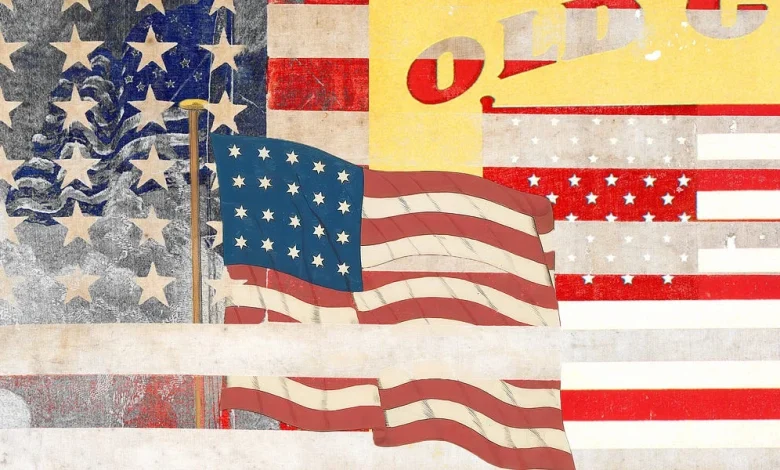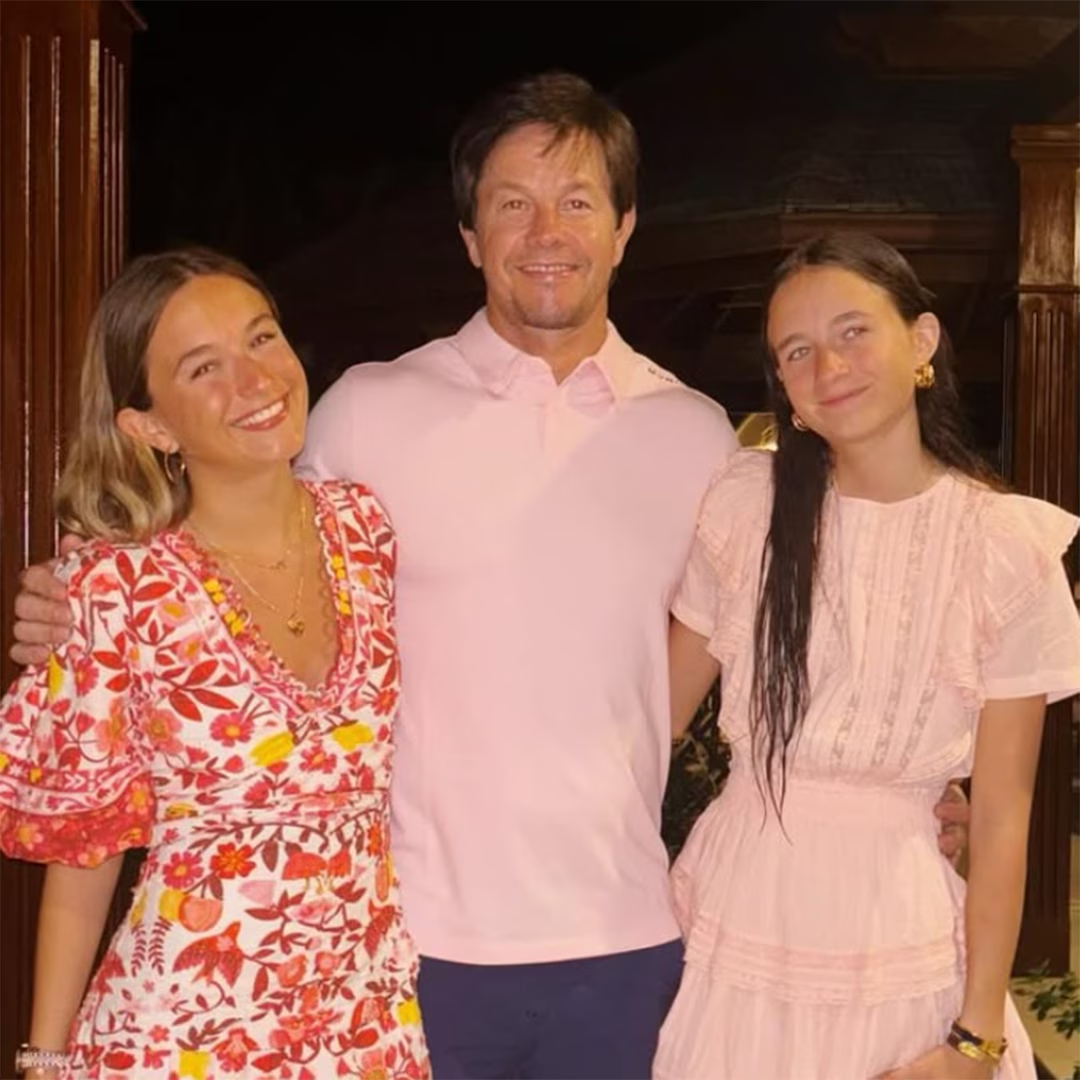My Father’s Flag and the Idea of America

[Editor’s note: In the months ahead, as the United States approaches its 250th anniversary, The Bulwark will be publishing an occasional series in which a variety of authors reflect on the sources and symbols of their patriotic attachment and their sense of American values. We are honored to kick off the series with this personal essay by Laurence Tribe, one of the nation’s leading scholars of constitutional law and a teacher to generations of prominent figures in the law and public life.]
(Composite / GettyImages)
“I DON’T BELIEVE YOU,” my friend said.
He had just asked me about my values as an American. He suggested that, like many people, I had inherited my American values from my parents. But because of my family’s particular history as refugees, I said, “No, not from my parents: The values that guide me came from everything I experienced and encountered throughout my life.’”
He said something like, “I’ve known you fifty years. I’ve seen you in every circumstance. There’s something about you that’s strongly driven by your values. What I’d call ‘values faith’ has to come from an incident or a story. Think about it.”
I did.
Here’s the story I remembered. It’s about an American flag. And, as my friend suspected it would be, it is a story about my parents.
My mother died eighteen years ago on September 12, 2007, while I was campaigning in support of a former student who was then far behind Hillary Clinton in the race for the presidential nomination: Barack Obama, the junior senator from Illinois.
My father, who died years earlier, had made his living selling cars of all kinds, used and new. He taught me a lot—not about cars or about business but about kindness and decency. When he’d been at the same company for twenty-five years, his boss gave him a gold watch. It has long since stopped ticking, but I keep it because it makes me proud to know why he received it. He wasn’t a star salesman—far from it. He was known for talking people out of buying cars they didn’t really need, even though doing so cut into his commissions, the only source of income for our family. He was given that watch for being a mensch.
In 1980, I phoned my parents to wish them a happy fortieth wedding anniversary. It was the night before their anniversary, which was to have been a day of celebration. I’ll always be glad I called when I did because the next day, on their actual anniversary, my dad had a massive heart attack and died in my mother’s arms.
Her values, I think, came from the spiritual place she shared with my dad. Although her family was from Belarus, my mother was born in Harbin, Manchuria, in 1915, at a time when the region was under significant Japanese and Russian influence. My father was born in 1902 in a shtetl near Minsk, Belarus, under the rule of Czar Nicholas II, and fled with his family to Harbin in 1912. Both my parents were stateless, Jewish refugees—people without a country.
The Bolsheviks toppled the Russian Empire in 1917. My father fled to California six years later to become an American citizen. Why America? Because he sensed that Americans believed not only in “life, liberty and the pursuit of happiness” but also in due process and in the law itself. ‘There is no czar or emperor in America,’ he thought.
He worked in San Francisco as a short order cook and a car salesman. He returned to Harbin in 1928 to court the girl he had remembered ever since she was 8, my mother. In 1940, when they no longer felt safe in Harbin, they made the 1,500-mile railway journey to Shanghai, the only place in the region that admitted Jews at the time. They married, and I was born months before Japan occupied Shanghai and attacked Pearl Harbor on December 7, 1941.
Being a U.S. citizen, my father was forcibly taken from our small apartment and confined in a notorious Japanese prison camp in Pootung, Shanghai, in 1943. Watching in tears and confusion as the Japanese police hauled my father away to the dilapidated tobacco factory that Japan had turned into a “Civil Assembly Center,” I absorbed an almost instinctive distrust of unbridled power, power to break up families and snuff out freedom.
My father survived more than two years in the unspeakable conditions of that prison camp. In 1945, as World War II ended and the camp was liberated by U.S. military, he secured passage in the hold of a decommissioned American troop ship and brought his growing family—my mother, me, and my infant brother—to San Francisco, where my brother and I soon became naturalized American citizens. We later became the first in our extended family to attend college.
When my father died on the fortieth anniversary of his marriage to my mother, she gave me an American flag that held a special place in her life with my father. Here is the story of that flag.
It was a present she secretly gave him when he was jailed. My father needed hope to survive that harrowing prison camp. And my mother knew that the American flag, the symbol of the country that had welcomed him, a stateless Jew, to citizenship years earlier, would supply that hope. After all, he was right to have gone to America: To him, and to my mother, the America that had gone to war against the fascist, antisemitic nations of Germany and Italy and their imperial ally Japan stood for principles of freedom and fairness.
My father knew, as my mother did, that he would have been punished mercilessly, maybe tortured to death, if that flag had been discovered. So he had to hide it. What it stood for—a nation aspiring to “liberty and justice for all”—meant enough to both my parents that they risked their lives as she smuggled the flag into the camp. They hid it in the false bottom of the dark green metal trunk that held all his possessions.
He kept it with him for the rest of his life. At his funeral, my mother gave it to me.
Wow!
That American flag means the world to me, partly because of the personal ordeal to which it bears silent witness but, even more, because of the national ideals it symbolizes. The public schools I attended in San Francisco didn’t teach a phony version of America the beautiful—an America that was never ugly. They taught a lesson much more inspiring, the lesson that America, for all its flaws and misdeeds, stands for an idea so much better than the worst parts of its legacy. They taught that America, a nation of immigrants like me and my family, stands for an idea worth fighting and dying for, the idea of a nation whose principles were inseparable from the inscription at the base of the Statue of Liberty welcoming the “huddled masses yearning to breathe free.” I equated that flag with ideas and ideals that lay at the foundation of a republic governed not by a powerful few but by all its people, pursuing liberty under law.
(Photo by Laurence Tribe)
I brought that flag to my home in Massachusetts. Often, as I prepared to teach about the U.S. Constitution, I imagined the millions of men and women who had pledged their lives, fortunes, and sacred honor to preserve and protect what the flag represented to them and to their families. The values of the law school classes I have taught for the past fifty years are embodied in that flag. As I look today at my parents’ flag, I see it beckon to my father, drawing him from Manchuria to become a short-order cook in San Francisco.
So my friend was right: My values came from my parents’ struggle for freedom. That successful struggle lives in the symbol of the nation my dad chose. A symbol my mother helped him hide in a prison camp. A symbol of hope, a symbol of freedom, a symbol of a place where all are equal before the law.
Even now, I can’t look at that flag without thinking of the bravery it took for my father to hide it from his armed, anti-American guards, and of the faith it took for my mother to risk losing her husband over an idea, the idea of America.





